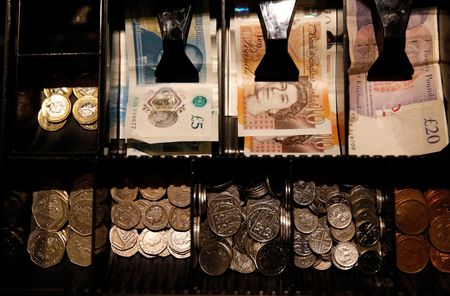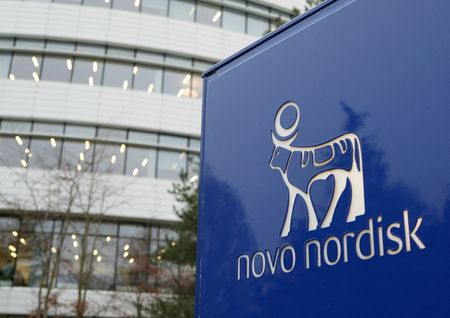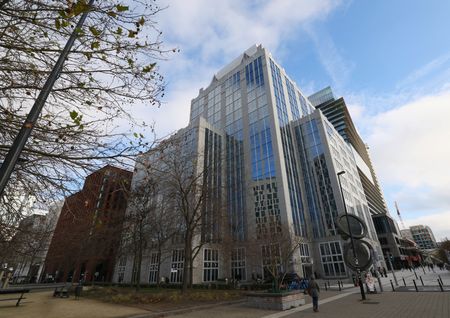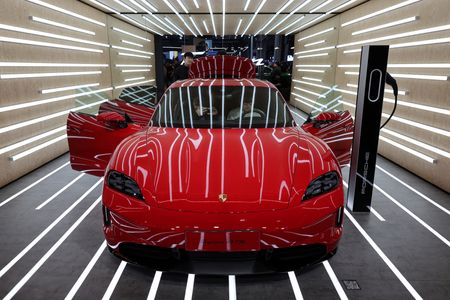LONDON (Reuters) – Momentum in euro zone manufacturing growth waned slightly last month but activity was still strong and supply chain constraints eased, a survey showed, although factories and consumers faced soaring prices.
IHS Markit’s final manufacturing Purchasing Managers’ Index (PMI) dipped to 58.2 in February from January’s 58.7, below an initial “flash” estimate of 58.4 but comfortably above the 50 mark separating growth from contraction.
An index measuring output, which feeds into a composite PMI due on Thursday and is seen as a good guide to economic health, nudged up to 55.5 from 55.4.
“Don’t let the drop in the headline PMI distract from what should be viewed as a largely positive month for the euro area manufacturing sector in February,” said Joe Hayes, senior economist at IHS Markit.
“Underlying sales conditions are clearly strengthening as Europe overcomes the Omicron wave of COVID-19 and businesses step up their recovery efforts.”
Demand rose at the fastest pace in six months and with factories building up a bigger backlog of work, headcount was increased to try and complete orders.
The need for additional raw materials, coupled with lingering supply issues caused by the coronavirus pandemic, drove vendor prices higher and factories passed that on to customers at a near record pace.
The output prices index was 71.7, albeit lower than January’s 72.7.
But that number could rise again as the Russia-Ukraine crisis has sent the price of Brent crude higher.
Inflation in the bloc was a record high 5.3% last month, preliminary official data is expected to show on Wednesday, likely adding pressure on the European Central Bank to tighten policy.
The ECB will raise its deposit rate in the second half of this year, according to a February Reuters poll of economists who sharply upgraded their 2022 inflation forecasts.
[ECILT/EU]
(Reporting by Jonathan Cable; Editing by Susan Fenton)









